



The Sponsors Exhibition and Startup Showcase will take place on July 20-21
Please note the agenda is tentative and subject to changes


Our Cyber Crisis Management event will completely shift the perspective of leaders and decision-makers on cyber crisis management and how it should be operated. We will provide participants with tools, tips, and guidance on how to mitigate the said issues and prepare their business for the ever-evolving digital threat landscape.
As cyber incidents increase both in frequency and implications, organizations must make sure they have an effective plan in place to steer through the cyber storm.
Moreover, business leaders must understand that cyber crisis management is a multidisciplinary field that requires much more than the involvement of the IT teams. Insurance, negotiation, legal, regulations, and PR are only a couple of important aspects to consider during any cyber crisis.
And in a crisis, every decision counts...

Wonder Woman 1984' premiered both on HBO Max and in movie theatres this weekend, which proved to be a massive success. The same can be said for the film's release on pirate sites which hit record numbers. On Saturday, nearly 10% of all pirate downloads on torrent sites related to Wonder Woman, something we haven't seen before.

Digital Transformation can boost the 17 sustainable development goals. Cyber resilience is the essential enabler of digital transformation. In this roundtable representatives of donor organizations, beneficiary countries, critical infrastructure protection practitioners and academia will share current approaches to capacity building. The forum will showcase some of the most innovative and significant initiatives attempting to take Cyber Capacity Building to the next level, as well as facilitate brainstorming and the mutual sharing of insights.
At this session, Tel Aviv University will aslo inaugurate the Regional Cyber Resilience Center. This major applied research initiative expresses the commitment of Tel Aviv University and the Ministry of Regional Cooperation to benefit all the people throughout the region, including the Mediterranean and the Gulf.
The Regional Cyber Resilience Center will develop innovative and cost effective methods and provide knowledge and expertise to support regional digital transformation.

YL Ventures and Scale Venture Partners invite you to our Cyber Week Fireside Chat! Join us at a trendy Tel Aviv rooftop bar to hear from an esteemed panel of cybersecurity leaders and network with the industry’s best and brightest entrepreneurs and experts.
All welcome

Our Cyber Crisis Management event will completely shift the perspective of leaders and decision-makers on cyber crisis management and how it should be operated. We will provide participants with tools, tips, and guidance on how to mitigate the said issues and prepare their business for the ever-evolving digital threat landscape.
As cyber incidents increase both in frequency and implications, organizations must make sure they have an effective plan in place to steer through the cyber storm.
Moreover, business leaders must understand that cyber crisis management is a multidisciplinary field that requires much more than the involvement of the IT teams. Insurance, negotiation, legal, regulations, and PR are only a couple of important aspects to consider during any cyber crisis.
And in a crisis, every decision counts.

Today's security environment has grown too complicated. Clients have too many tools, too much data, and too few resources. Typically, the security operations center analysts take 200+ days to detect an attack and another 70+ days to respond.
To transform, we must think differently. We can follow the example set by other major technology areas and our adversaries: leveraging open & collaborative practices to react faster and respond more intelligently.
This session will address how Open Security can be the next frontier for Security and transform security operations. We will discuss how using an open platform to integrate existing security tools across a hybrid environment can generate more in-depth insights, help analysts respond faster to incidents and become more proactive with an open threat hunting approach.



GERMANY - ISRAEL: Cyber Research & Innovation Roundtable Hosted by the German Embassy in Tel Aviv and the Israel Office of the Helmholtz Association of German Research Centers
Join our innovative Cybersecurity and industry leaders exchanging knowledge and strategies within the cyber ecosystems in Germany, Europe and Israel.
Session moderated by: Danny Seker, Digital, Industry, Space and Civil Security Senior Director, ISERD, Israel Innovation Authority
Special Welcome Greeting
Orit Farkash-HaCohen, Minister of Innovation, Science & Technology
Welcome
Andreas Könen, Director General Cyber and Information Security, German Federal Ministry of the Interior
Yigal Unna, Director General, Israel National Cyber Directorate
TRACK 1: CYBER & AVIATION: From A German and Israeli Innovation Lens
Keynote
Mr. Christoph Müller, Head of Defense Research at the German Aerospace Center, DLR - The Need for Robust and Resilient Air Platforms in a Networked Environment
Fireside chat
Mr. Christoph Müller, Head of Defense Research at the German Aerospace Center, DLR
Frank Schubert, Airbus Cyber Security, Head of Defense & Strategic Programs
Noam Krakover, Chief Revenue Officer, Cyber Division, Israel Aerospace Industries, Ex Head of Intelligence and Assessment Division in Strategy and Policy Division, INCD
Moderator: Dadi Gertler, Executive Director of Systems and Technology Alliances, Israel National Cyber Directorate
TRACK 2: CYBER & MOBILITY – A Necessary Pillar of Smart Cities
Keynotes
Prof. Frank Köster, Founding Director, Institute for AI Safety and Security, German Aerospace Center, DLR - The EU‘s unified cloud ecosystem GAIA-X: Enabler for innovative Value Added Services for Mobility & Smart Cities
Prof. Tali Hatuka, Head, Laboratory for Contemporary Urban Design (LCUD), Department of Geography, Porter School of the Environment and Earth Sciences, Tel Aviv University - The Digital City: Critical Dimensions in Implementing the Smart City

The session will include the following talks:-
Nimrod Vax, Co-Founder and Head of Product, BigID - AI and Privacy - Friend or Foe? Should it be regulated?
Liron David, Researcher, Tel Aviv University - An Explainable Online Password Strength Estimator
Ernesto Damiani, Professor, Department of Informatics, University of Milan; Director of the Centre on Cyber-Physical Systems, Khalifa University, Abu Dhabi - Models and Security Controls Framework for AI-ML based Systems
Raluca Ada Popa, Assistant Professor, EECS, UC Berkeley Co-Founder and President, Opaque Systems - Enabling learning on confidential data
Roei Schuster, Researcher, Cornell & Tel Aviv University - Machine Learning: A Systems-Security Perspective





How do CISOs assess vendor viability? What qualifies new technology as a good investment? How should vendors approach CISOs? Join us for an insightful panel discussion between prominent U.S.-based CISOs and promising Israeli cybersecurity startups!
Don’t miss the opportunity to hear from leading CISOs and industry experts as they take the stage to share their strategic advice and insider perspectives on navigating customer-vendor relationships with cybersecurity startups.



 Nancy Shapira-Aronovic, Business Development Director, Gartner Israel
Nancy Shapira-Aronovic, Business Development Director, Gartner Israel
Join us online as Nancy chats with the people behind the 2021 startups that were selected to join Cyber Week 2021
Broadcasted LIVE on stage at Tel Aviv University, this session will give you a brief look into their innovative technology, where they started from and what the future holds for each and every one of them

In the wake of a global virus outbreak, the war rages on – and FraudCON is back!
FraudCON War Stories is a virtual experience consisting of 20-minute episodes that fraud fighters can view live during the event (July 21st) or watch later, binge-style.
FraudCON will focus once more on War Stories – our elite cybercrime warriors will share their gory real-world tales from the trenches, taking us through their fearless expeditions and give us a glimpse into their combat tactics in fighting online financial crime.
Romance scams, employment scams, government grant scams, fraud department impersonation scams - name practically any scam, and you can be sure the pandemic made it easier than ever for scammers to trick consumers in 2020. The job loss, isolation and uncertainty experienced by so many caused widespread vulnerability, creating a perfect storm of opportunity for fraudsters all over the world. Most of these scams have common elements that can be tracked by manual and automated processes, and something as simple as implementing preventative training for frontline staff can make a measurable impact in reducing the financial devastation often experienced by scam victims.
While we will never be able to catch it all, there is always room for improvement where fraud mitigation is concerned.
Join me to learn about the anatomy of many of the most successful scams I witnessed last year, why I think they worked so well, and steps industries can take to better protect consumers.
As credit card fraud becomes less challenging to detect in part because of advancements in fraud prevention technology, fraudsters have turned to creative forms of fraud to steal merchandise from online companies. In this session, e-commerce fraud consultant Karisse Hendrick will speak with Dajana Gajic-Fasic, the Head of e-commerce fraud and risk management for Finishline and JD Sports. Dajana will share war stories of cybercriminals creatively gaming the system, often without using a stolen credit card. And more importantly, how she is making it virtually impossible for them to succeed.
As digital transformation continues to accelerate amidst the evolving COVID pandemic status, adversaries have been customizing advanced digital fraud operations to automate and scale the process of stealing and using digital credentials, leading to unprecedented peaks in identity theft and financial fraud.
In one of our recent war stories, our researchers uncovered and analyzed the kill chain of a sophisticated reverse proxy man-in-the-middle phishing automation framework that is used in the hands of fraudsters to compromise digital accounts, bypass MFA methods, and take accounts over swiftly and at scale. The session will include a reconstruction of the attack crafted in our research labs.
Open to all audiences, this session will focus on the newest and most advanced fraud techniques, automation frameworks, and account take over operations, devised by cybercriminals to address the ever growing digital footprint of users across the globe, and the staggering volume of compromised user credentials that fuel the cybercrime economy
Several short descriptions of real-world failures of advanced AI fraud detection. What went wrong, why, and what it cost.
In this presentation we will cover the importance of monitoring for fraud prevention in the banking and cyber security sectors as well as the case with the twitter hack and the investigative processes in blockchain analysis.
A case study discussion about strategies to detect mules within a banking environment and the benefits of keeping criminals out of your bank.
In this talk, Réka will share a challenging fraud ring that she has faced at Riskified, of fraudsters that used American dating sites to prey on vulnerable people and use them in the fraud scheme. We'll learn how we can fight this kind of fraud, and what is our social responsibility in protecting vulnerable communities
Credential fraud is rampant and does not end with your Netflix account. We believe piracy can be eradicated but it need collaboration throughout the ecosystem: tech vendors, legislators, and you, because when you share your credential or when you use a weak password it is in most cases expose you to identity theft. Think about the great movies that are waiting to be filmed and let’s protect this industry from pirates.
Due to stringent economic sanctions against Iran over the past decade, which have cut off the Iranian banking system from the rest of the world, individuals and entities that intend to move funds from Iran must do so in the form of "underground banking". While most transactions are for legitimate personal remittances, there are transactions that are used for illicit purposes, including terrorism. This presentation will define what is meant by the term underground banking. It will also cover how it relates to the movement of funds globally through hawaladars, trade-based money laundering, as well as virtual currencies including the recent introduction of Non-Fungible Tokens (NFT's). It will further analyze the method in which terrorist organizations have exploited underground banking to finance their activities.
Fraud and Financial Crime Fighters have the very real opportunity to make an impact on society and the world for good. With access to advanced techniques, analytics, infrastructure and training, the modern day fraud fighter is uniquely positioned to protect vulnerable populations. In this session, a 20 year fraud fighting veteran who has battled Fraud in over 30 countries, will share his personal story and several cases that really opened his eyes to the truth behind the fraud fight.
The presentation focuses on how payment fraud has evolved in the UK over the years and the rise of scam attacks. The introduction of CRM, and how we use complex detection and prevention tools and also need collaboration between the banks and other industries to combat the challenges that these new sophisticated scams present.
In this session, leading data protection experts will provide practical insights into what to expect in the upcoming months as countries begin to establish detailed requirements for all things data.

12:00 - 13:00 - What to expect from US federal and state regulation? How are leading global companies managing the emerging laws, platform standards to comply with and regulations to protect consumers?
 Jules Polonetsky, CEO, Future of Privacy Forum; Co-Founder, Israel Tech Policy Institute; USA
Jules Polonetsky, CEO, Future of Privacy Forum; Co-Founder, Israel Tech Policy Institute; USA
 Tali Guy, VP Global Compliance & Ethics and Global Data Privacy Officer, Teva Pharmaceutical Industries
Tali Guy, VP Global Compliance & Ethics and Global Data Privacy Officer, Teva Pharmaceutical Industries
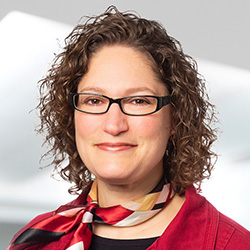 Jessica Blazer, Chief Privacy Officer, Playtika
Jessica Blazer, Chief Privacy Officer, Playtika
 Boris Segalis, Partner, Co-Chair, Data + Privacy + Cybersecurity, Goodwin LLP, New York
Boris Segalis, Partner, Co-Chair, Data + Privacy + Cybersecurity, Goodwin LLP, New York
 Limor Shmerling Magazanik, Managing Director, Israel Tech Policy Institute, Israel
Limor Shmerling Magazanik, Managing Director, Israel Tech Policy Institute, Israel
13:00 - 14:00 - Assessing developments around the world International data flows, new and updated laws in China, India, Japan, South Korea and Brazil. The future of EU-US, EU-Israel and global data transfers at a time of rising demand for data sovereignty
 Omer Tene, Chief Knowledge Officer; International Association of Privacy Professionals, USA
Omer Tene, Chief Knowledge Officer; International Association of Privacy Professionals, USA
 Prof. Peter Swire, Elizabeth & Tommy Holder Chair of Law and Ethics, Scheller College of Business Georgia Institute of Technology; Senior Counsel, Alston & Bird, LLP
Prof. Peter Swire, Elizabeth & Tommy Holder Chair of Law and Ethics, Scheller College of Business Georgia Institute of Technology; Senior Counsel, Alston & Bird, LLP
 Dr. Gabriela Zanfir-Fortuna, Director for Global Privacy - Future of Privacy Forum
Dr. Gabriela Zanfir-Fortuna, Director for Global Privacy - Future of Privacy Forum
 Mark Parsons, Partner, Hogan Lovells, Hong Kong
Mark Parsons, Partner, Hogan Lovells, Hong Kong
This event will be held in Hebrew
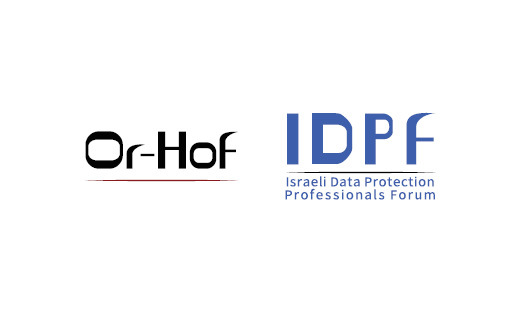
The EU has recently published new standard contractual clauses (SCCs) and recommendations on extra safeguards for transferring GDPR-covered data.
As a result, in less than three months, thousands of Israeli companies will have to completely revisit their data transfer strategy, or face a commercial shutdown.
Our event will focus on what a company needs to do to prepare for this change.
Your key takeaways:
13:30 - 14:00 - The Upside Down: The Roles and Responsibilities of Cybercrime Syndicates
 Oded Vanunu, Head of Products Vulnerability Research - Check Point Software Technologies
Oded Vanunu, Head of Products Vulnerability Research - Check Point Software Technologies

Cybercrime is constantly evolving like any public organization, innovative thinking, experts and talents hiring—all the things you expect in a large organization but with a different path: to achieve profitability. This session will deep dive into underground roles and structures and how they operate, and then review major cyber-incidents and look how the underground roles took part in the incidents
14:30 - 17:00 - Quantum Encryption Session
Introduction to the world of quantum computers
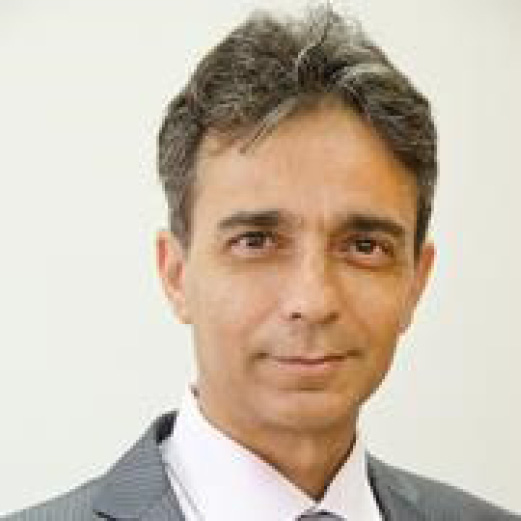 Prof. Yaron Oz, Director, Center for Quantum Science and Technology, School of Physics and Astronomy, Faculty of Exact Sciences, Tel Aviv University
Prof. Yaron Oz, Director, Center for Quantum Science and Technology, School of Physics and Astronomy, Faculty of Exact Sciences, Tel Aviv University
14:50 - 15:25 - Keynote
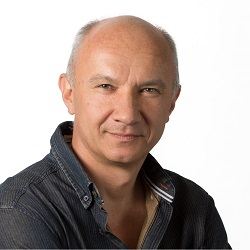 Prof. Artur Ekert, Mathematical Institute, University of Oxford Lee Kong Chian Centennial Professor, National University of Singapore, Founding director of the Centre for Quantum Technologies in Singapore
Prof. Artur Ekert, Mathematical Institute, University of Oxford Lee Kong Chian Centennial Professor, National University of Singapore, Founding director of the Centre for Quantum Technologies in Singapore
15:25 - 15:50 - Assessment of the suitability of satellite quantum communications under realistic and finite-sized statistics
 Prof. Alexander Ling, Director, Quantum Engineering Programme at National University of Singapore
Prof. Alexander Ling, Director, Quantum Engineering Programme at National University of Singapore
Recent progress in proof-of-concept quantum communication protocols from space have raised awareness about possibly using satellites to deliver quantum signals as a service. How realistic is this expectation in a real-world scenario? In this talk, I will address some of the challenges, and discuss the prediction of our model for the expected output when using small satellites in Low Earth Orbit.
15:50 - 16:10 - Quantum Energy Landscape and Variational Quantum Algorithms
 Dr. Joonho Kim, Postdoctoral Researcher at Institute for Advanced Study, Princeton, New Jersey
Dr. Joonho Kim, Postdoctoral Researcher at Institute for Advanced Study, Princeton, New Jersey
Joonho Kim is a theoretical physicist working as a postdoctoral research fellow at the Institute for Advanced Study in Princeton, US. Previously, his research focused on quantum field theory and quantum aspects of black holes. He is now actively working on hybrid quantum computing and variational algorithms and looking for their interesting applications.
16:10 - 16:35 - Detuning-modulated composite pulses for high-fidelity robust quantum control
 Prof. Haim Suchowski, Head of the Femto-Nano Laboratory, Department of Condensed Matter Physics, School of Physics and Astronomy, Tel Aviv University
Prof. Haim Suchowski, Head of the Femto-Nano Laboratory, Department of Condensed Matter Physics, School of Physics and Astronomy, Tel Aviv University
Quantum information processing (QIP) relies on high-fidelity quantum state preparation and transfer; this presents a challenge in practical realizations where the admissible error of quantum operations is smaller than 10−4. Thus, even small systematic errors, i.e., due to imperfections in fabrication or in the experimental control knobs, reduce the fidelity of state transfer below the fault-tolerant threshold. A powerful tool to correct for such errors are composite pulses (CPs), initially developed in the field of nuclear magnetic resonance. These are a sequence of pulses with different areas and/or phases that implement accurate and robust quantum gates. A promising candidate for advancing QIP technologies is integrated photonic circuits due to their scalability and on-chip integration capacity. However, the fidelity of operations remains below the QIP due to unavoidable fabrication errors. CPs have not previously been used to correct for such errors, as existing sequences require control of the phase of the coupling, which in integrated photonics is a real parameter.
We introduce a detuning-modulated composite pulses control method for robust QIP and implement our solutions in integrated photonic systems. These correct for errors in various parameters, achieving fidelity above the QI threshold 10−4. Detuning-modulated CPs allow for remarkable error tolerance in qubit inversions. Thus they are perfectly suited for implementation in various quantum information platform including IBM quantum computer as well as integrated photonic circuits. We believe that such new method can provide a path for true high-fidelity QIP schemes.
16:35 - 17:00 - The practicality of commercial QKD in optical transmission
 Prof. Hagai Eisenberg, Associate Professor Racah Institute of Physics The Hebrew University of Jerusalem
Prof. Hagai Eisenberg, Associate Professor Racah Institute of Physics The Hebrew University of Jerusalem
The Academic Conference brings to the stage important topics and recent achievements, in various research efforts along the Cyber interdisciplinary domain. This year as part of a hybrid cyber week, the Academic Conference will leverage three sub-domains with deep perpectives in which scholars from around the globe will share during the event.
Opening remarks
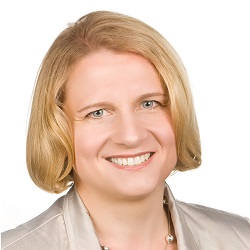 Ambassador Heli Tiirmaa-Klaar, Ambassador-at Large for Cyber Diplomacy at the Estonian Ministry of Foreign Affairs
Ambassador Heli Tiirmaa-Klaar, Ambassador-at Large for Cyber Diplomacy at the Estonian Ministry of Foreign Affairs
20:15 - 21:30 - Lectures and discussion
 Prof. Chris C. Demchak, Strategic and Operational Research Department, U.S. Naval War College
Prof. Chris C. Demchak, Strategic and Operational Research Department, U.S. Naval War College
 Dr. Lior Tabansky, Head of Research Development, Blavatnik Interdisciplinary Cyber Research Center, Tel Aviv University
Dr. Lior Tabansky, Head of Research Development, Blavatnik Interdisciplinary Cyber Research Center, Tel Aviv University
 Mauritz Kop, Stanford Law School TTLF Fellow, Founder of MusicaJuridica and Strategic Intellectual Property Lawyer at AIRecht
Mauritz Kop, Stanford Law School TTLF Fellow, Founder of MusicaJuridica and Strategic Intellectual Property Lawyer at AIRecht
 Marietje Schaake, International Policy Director at the Cyber Policy Center; International Policy Fellow at the Institute for Human-Centered Artificial Intelligence
Marietje Schaake, International Policy Director at the Cyber Policy Center; International Policy Fellow at the Institute for Human-Centered Artificial Intelligence
18:00 - 20:00 - Let's get Physical: The SAE G-32 Solution for the Cyber-Physical Cyber-Menace

Abstract:
Cyber-Physical Systems (CPS) include Wearable Medical Devices, Smart Grid, Autonomous Vehicles, Supervisory Control and Data Acquisition (SCADA) systems, Industrial Control Systems (ICS), Internet of Things (IoT) systems, Satellite Communication Systems for commercial and government integration, weapons systems supporting the Warfighter, and a variety of embedded systems that include software, firmware, and electronics hardware.
Can these be hacked? Of course. Are they hacked? All the time. Are there available standard Cybersecurity solutions available? Not quite, almost. Which is where SAE gets into the picture.
This year, for the first time, the Society of Automotive/Aerospace Engineers (SAE International, founded in 1905) is joining forces with the Tel-Aviv Cyber Week: the SAE G-32 Cyber Physical Systems Security (CPSS) standard-making committee, will be providing their annual overview of the committee's work during a special, 2-hour session, as part of Cyber Week's virtual agenda. The committee’s charter's unique scope addresses the development of CPSS standards intended for multi-sector, cross-industry use to address weaknesses and vulnerabilities of the system and system elements (e.g. software, firmware, hardware). G-32's diverse cross-industry/cross-sector/cross-nation active participants base includes members from industry (e.g. Aviation, Automotive, Medical Devices, Industrial Control Devices, IoT, and Banking & Finance), Government, and Academia – from all over the globe.
Notional Agenda:
Israel Maritime Cybersecurity Summit (IMCS) @ Ashdod Port
07:30 - Transportation from Tel Aviv
08:30 - 09:30 - Gathering & Registration
09:30 - 10:00 - Opening Remarks
10:00 - 10:15 - Keynote: The Challenges of "Cybered" Conflict in the Maritime Domain
Prof. Shaul Chorev, Director of the Maritime Policy & Strategy, Research Center, University of Haifa
10:00 - 10:45 - Leadership Panel
Moderator: Mr. Dadi Gertler, Executive Director of Systems, INCD
Speakers:
10:45 - 11:30 - Panel I: Port Ecosystem Cybersecurity
 Gadi Benmoshe, Chief Information Officer at Israel Ports Development & Assets Company (IPC)
Gadi Benmoshe, Chief Information Officer at Israel Ports Development & Assets Company (IPC)
Keynote
11:30 - 11:50 - Coffee Break
11:50 - 12:00 - Keynote
 Eyal Ben-Amram, EVP Chief Information Officer - ZIM, BOD Member of Cyberstar
Eyal Ben-Amram, EVP Chief Information Officer - ZIM, BOD Member of Cyberstar

12:00 - 12:05 - Keynote
Mr. Peter Adams, Head, Maritime Security Section, Maritime Safety Division, IMO
12:05 - 12:40 - Panel II: Vessel & Shipping Company Cybersecurity
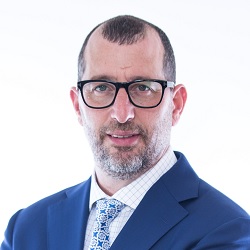 Ram Levi, Founder and CEO, Konfidas
Ram Levi, Founder and CEO, Konfidas
Speakers:
12:40 - 12:55 - Keynote
 Ibrahim Al Najjar, Director of Information Technology DP World, UAE Region
Ibrahim Al Najjar, Director of Information Technology DP World, UAE Region
12:55 - 13:45 - Lunch Break
13:45 - 14:15 - Panel III: Maritime Cybersecurity Regulation
Moderator: Ms. Ortal Niv, Head of the Cyber Division, Israel Ministry of Transport and Road Safety
Speakers:
14:15 - 15:30 - Ashdod Port Cyber Innovation Program
Mr. Roy Avrahami, Ashdod Port Company
Ashdod Port Cyber Innovation Program Start-Ups
15:30 - 15:35 - Closing Remarks
Mr. Tamir Goren, Director of Strategic Programs, INCD
15:35 - 16:30 - Ashdod Port Tour
Tour Moderator: Ashdod Port
16:30 - Transportation to Tel Aviv
In-person event only